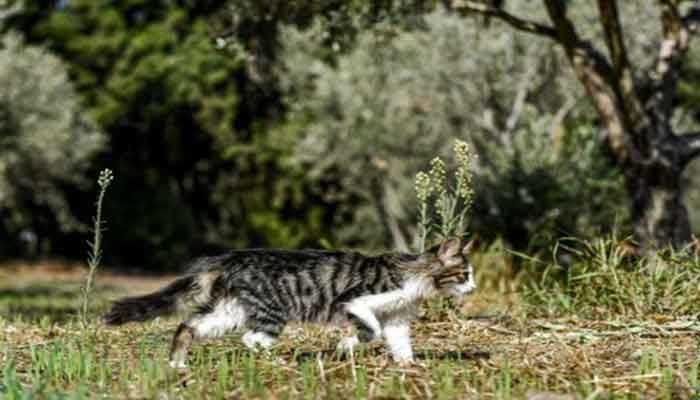
Desk Report
Publish: 30 Nov 2020, 10:52 am

Standing in her olive grove in Cyprus, Elena Sampson sighs at the sight of hundreds of barren trees and promises to tackle climate change after another scorching year.
The first of many heatwaves in 2020 came down in May, the flowering season for its 2,500 olive and citrus trees in Akaki, some 20 kilometers (12 miles) away from Nicosia, the capital of the Mediterranean island, reports AFP.
“This year the heatwave struck at the exact time that the olive trees were flowering, and it was not just a heatwave of a couple of days,” said the 38-year-old Greek Cypriot.
“We were watering, watering, but we didn’t manage to save the blossoms,” Sampson said. “This year, maybe 40 (of her 1,200 olive) trees had olives — Nothing! Nothing!”
Harvested for millennia on Cyprus, olives are at the heart of the local culture and trees now cover 11,000 hectares (27,000 acres) of its land, according to the UN’s Food and Agriculture Organisation.
More than 19,000 tonnes of olive oil were produced in 2018.
But olive oil and other sectors of Cypriot agriculture face the threat of climate change, Adriana Bruggeman, an associate professor at the Cyprus Institute, told AFP.
“Not only droughts, but also increasing temperatures and heatwaves affect the flowering, fruit set and ripening of crops,” she said.
Although olive trees are generally resistant to drought, they do need water during the spring flowering season.
But Bruggeman warned that certain semi-arid areas of Cyprus are now at risk of becoming totally arid by 2050 as a result of global warming.
Official figures show that average annual rainfall has dropped to 470 millimeters (18.5 inches) since 1971, down from 540 mm (21 inches) between 1902 and 1970.
On top of that, heatwaves are growing more common and have squeezed the duration of springtime.
This year alone, the mercury soared above 42 Celsius (104 Fahrenheit) on May 17 and the island experienced its highest ever recorded average daily temperatures for July, August and September.
– Change is ‘doable’ –
“We know that climate change will make the region hotter and drier… We need to adapt to this change and make our agricultural and semi-natural ecosystems more resilient,” said Bruggeman.
Sampson is ready for alternative methods and new ways.
“If you have healthy soil, you have less run-off, less erosion, more water retention, which means we can try to fight droughts,” said Sampson, who took over the family farm two years ago.
A 2016 study based on the worst-case scenario, by the United Nations Intergovernmental Panel on Climate Change, warned that 43% of Cyprus's territory is at "critical risk of desertification.
Sampson, who largely avoids tilling her land—a practice that contributes to soil erosion and carbon loss—says to install drip irrigation and plant other crops between olive trees. Also, it can no longer use pesticides.
“I think it’s doable to make that change, I want to be part of that change,” she said.
Bruggeman likewise noted that “improved practices, such as no-till systems, rotation with legumes and application of organic fertilisers could improve productivity”.
Subscribe Shampratik Deshkal Youtube Channel
Topic : Climate Change
© 2024 Shampratik Deshkal All Rights Reserved. Design & Developed By Root Soft Bangladesh